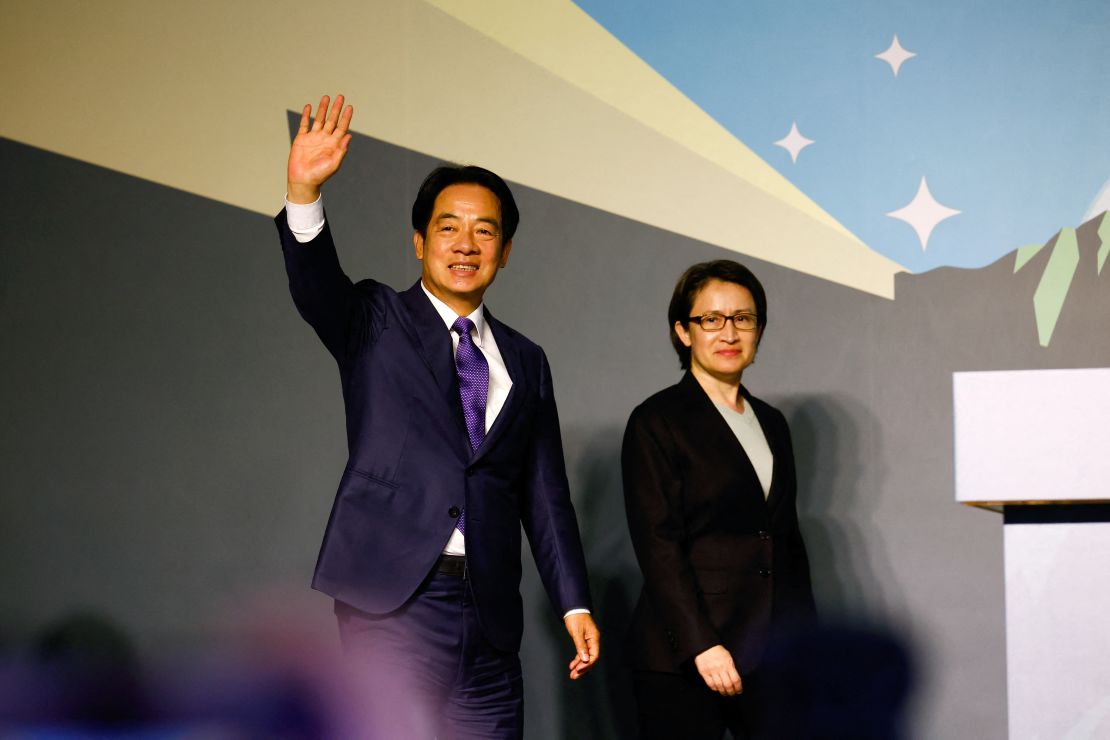“The new government will steer towards peace'”, Taiwan’s newly elected president, Lai Ching-te, proclaimed in his inaugural address, urging China to seize military and political confrontations.
This is President Lai Ching-te swearing his oath. Before his awaited inauguration speech, one catchphrase has already surfaced: 不卑不亢,維持現狀. Not easy to translate without losing the rhyme. Maintain the status quo without being self-demeaning or arrogant? https://t.co/zD67dvUSkW
— Mathieu Duchâtel (@mtdtl) May 20, 2024
Lai Ching-te has been sworn-in as Taiwan’s new president on Monday morning at the Japanese colonial-era presidential office in central Taipei, taking over from Tsai Ing-wen, whose eight years in power saw a deterioration in relations with Beijing. Communist China governed under its authoritarian ruler, Xi Jinping, has reckon Lai Ching-te a “dangerous separatist” who will bring war and terror to the nation island.
The newly elected Taiwanese president has reassured people of Taiwan that under his administration their motherland will thrive in independence, free from oppression from Chinese dictate. His stringent “No-China” policy was a big part of his election campaign, leading him to ultimate victory. In his first address as president, Lai said the future of Taiwan was as important to the world as it was to Taiwan’s people, noting the island’s strategic importance.
He called on China to seize their political and military intimidation against Taiwan, share with Taiwan the global responsibility of maintaining peace and stability in the Taiwan Strait as well as the greater region, and ensure that the world is free from the fear of war. China claims democratic Taiwan as a province, destined to be reunified with its Chinese roots, but Taiwanese people have orchestrated their negligence towards Xi Jinping’s “One-China” policy and have worshipped their separate statehood.
“I hope that China will face the reality of the Republic of China’s existence, respect the choices of the people of Taiwan, and in good faith, choose dialogue over confrontation, exchange over containment, and under the principles of parity and dignity, engage in cooperation with the legal government chosen by Taiwan’s people.”
Lai’s “Peace Rhetoric” aims to deter China’s aggression
Lai Ching-te and the vice president, Hsiao Bi-Khim, who served as Taiwan’s top envoy to Washington, are both part of the Democratic Progressive Party (DPP), which has championed Taiwan’s sovereignty – condemning Taiwan’s dark history under authoritarian rule from 1949 until the late 1980s, and the first direct presidential elections in 1996, conveyed to the world that the Republic of China Taiwan is a sovereign independent nation in which sovereignty lies in the hands of the people.
In the past, Lai has described himself as a “pragmatic worker for Taiwanese independence”, a rhetoric which led to his ultimate victory in presidential election earlier this year. Lai drew cheers from the crowd when he said he wanted to see resumption of bilateral tourism policy between China and Taiwan, which is restricted. Many people in Taiwan have social and business ties with China and would like a return to friendly interactions, which can happen under certain conditions of peace and cooperation with the legal government chosen by Taiwan’s people, hinting at possible peace ties.
Lai’s personal sentiments on China’s reunification discourse is a toned town rhetoric with a borderline peace assertion, that moves in line with former president of Taiwan, Tsai’s more moderate stance, for which she was praised during her tenure as helping to keep peace without capitulation. For now, Taiwan’s president has chosen a friendlier path with China, a strategy that could yield positive outcomes if China complies, which under current circumstances, seems unlikely.

China asserts control over Taiwan
On Monday afternoon, a spokesperson from the Chinese ministry of foreign affairs said Taiwan independence was a “dead end, and no matter under what banner, succession is doomed to fail.” Chinese warplanes and naval vessels maintain a near-daily presence around the island, and in the week before the sworn-in ceremony there was an increase in the number of fighter jets and drones.
There was no immediate reaction to Lai’s speech from Beijing, but Chinese social media platform Weibo blocked a hashtag relating to the inauguration. Beijing which is maintaining a firm hand over what it assumes is its own territory, will unlikely fall for peace no matter who assumes presidential control over Taiwan. However, by opting for dialogue and cooperation, as communicated in his inaugural address, Lai aims to give Taiwan an upper hand in forging international ties with Western nations, which historically prefer to partner with the retaliating player.
The US Secretary of State, Antony Blinken, congratulated Lai, saying he looked forward to Washington and Taipei deepening ties and maintaining “peace and stability across Taiwan strait.” During the ceremony China’s commerce ministry announced sanctions against three US weapon manufacturers for supplying arms to Taiwan. No matter what China does, people of Taiwan have shared optimism in dismissing mainland China’s uncalled territorial fantasies -“Twenty-three million people will decide our own destiny. We are not subordinate to mainland China.. government, land, people, constitution, we have it all.”











